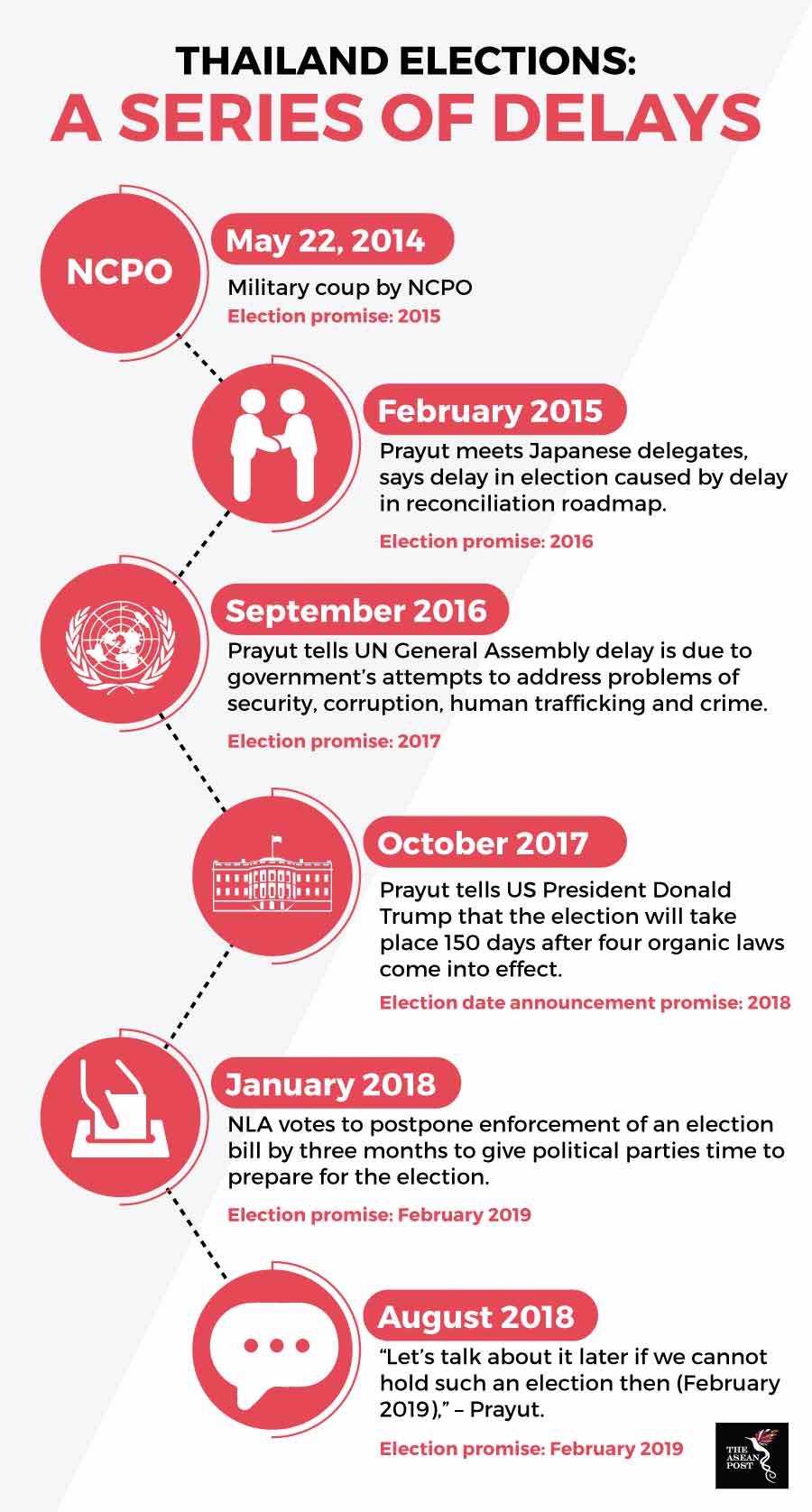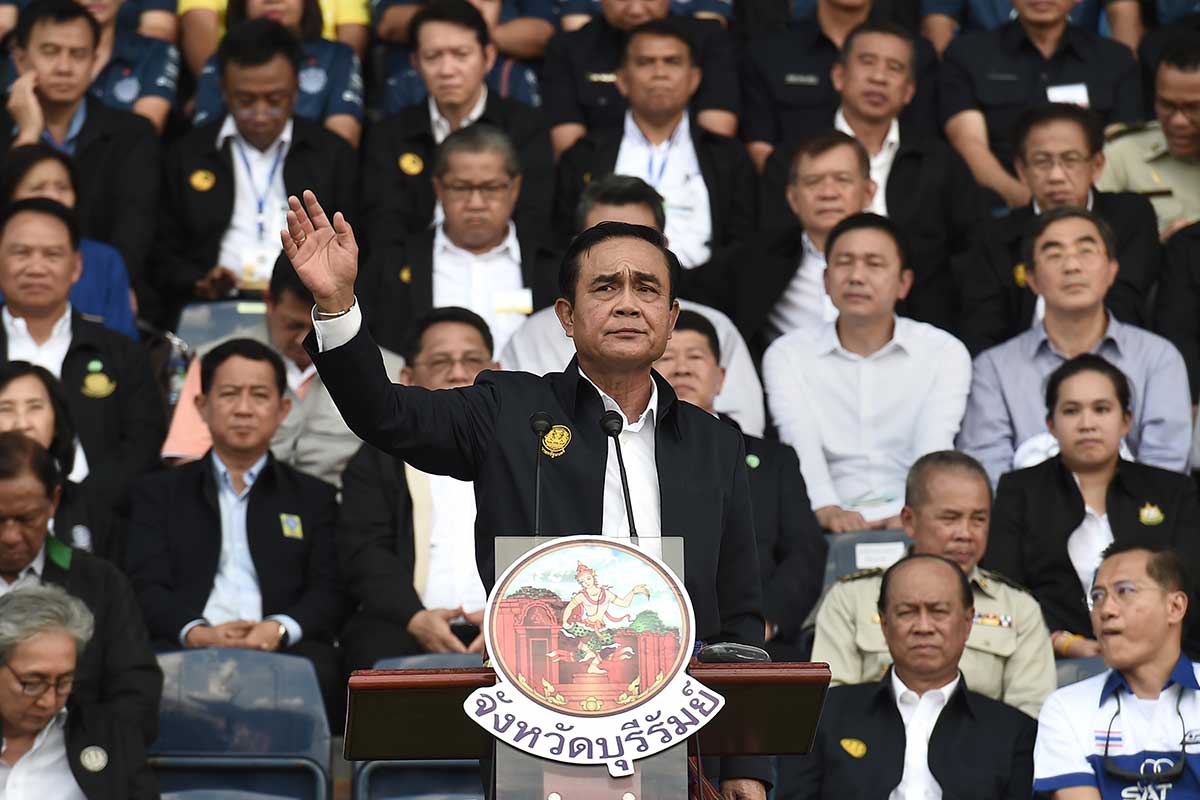Thai Prime Minister Prayut Chan-o-cha seems to have dropped another hint that the country’s long-awaited election will be delayed yet again. Despite previously promising that one will be held in February 2019, Prayut recently said that a further delay is possible.
“We still confirm that the general election will be held in February 2019. Let’s talk about it later if we cannot hold such an election then, and now there isn’t any factor to make us hold the election sooner,” he told reporters after a cabinet meeting in the southern province of Chumphon.
But scepticism and frustrations are running high in the Land of Smiles following delay after delay as to a promised date for the country’s general election. Shortly after the junta’s - The National Council for Peace and Order (NCPO) – military coup on 22 May, 2014, it promised an election the following year. Four years later and Thailand is still under military rule.
This scepticism was related in the Suan Dusit Rajabhat University's latest poll findings published in June. The poll, carried out between 5 to 9 June and involving a sample size of 1,130 people throughout the country, revealed that the hottest political topic among Thais is whether or not an election will ever take place, and if so, when.
According to the findings, 39.48 percent of respondents said the election and wanting confirmation on when and whether there will be one or not, was their main concern. 34.26 percent expressed a yearning to exercise their democratic rights as voters in the country's polls.
In January, Thailand's parliamentary body, the National Legislative Assembly (NLA), voted to postpone enforcement of an election bill by three months to give political parties time to prepare for the election. In the face of growing pressure, Prayut told reporters in Bangkok in February that February 2019 would be the final date. "Now I will answer clearly, an election will take place no later than February 2019,” he said.
However, Somchai Srisutthiyakorn, a former election commissioner, seemed to doubt that an election would take place any earlier than March 2019. In a recent Reuters report, Somchai said an upcoming parliamentary decision on whether to adopt one of four election bills needed for the election to happen could be delayed yet again. "The earliest we could see an election is March 2019, the latest would be June 2019."
Calls were made for the military government not to deviate from the November 2018 date but the prime minister and his cabinet insisted that the latest delay had nothing to do with them and was instead a decision made by the NLA.
"I am not able to interfere because these are legal issues that involve the responsible departments," Prayut explained.
Among those who made the call for an election to be held in November as promised was European Union (EU) ambassador Prikka Tapiola and United States (US) embassy spokesman Stephane Castonguay.

Source: Various sources
A series of unfortunate delays
Shortly after taking power, Prayut launched a year-long road map aimed at reconciling the people of Thailand. The initial delay, which occurred in February 2015 while meeting with delegates in Japan, was supposedly caused because of an incomplete reform roadmap.
"The second phase of the national reform roadmap is on its way but takes time. I assure you that I will do my best to develop bilateral and regional relations,” the Thai prime minister had reportedly said, promising that the election would take place the following year.
Then, in September 2016, Prayut told the United Nations (UN) General Assembly that elections would be held in 2017. He explained that the government was attempting to nip problems of security, corruption, human trafficking and crime, in the bud. "We believe addressing such problems at the roots can serve as a strong foundation for a sustainable democracy and good governance," he said.
In October 2017, Prayut told US President Donald Trump during a visit to the White House that a firm date for the election would be announced in 2018. He said that a general election will take place within 150 days after the four organic laws that will facilitate the election come into effect.
Because of the junta’s and Prayut’s track records, there’s no way to know for certain whether the election will indeed take place in February next year. Perhaps being cautiously optimistic is the best approach Thais can take for now.
Related articles:
